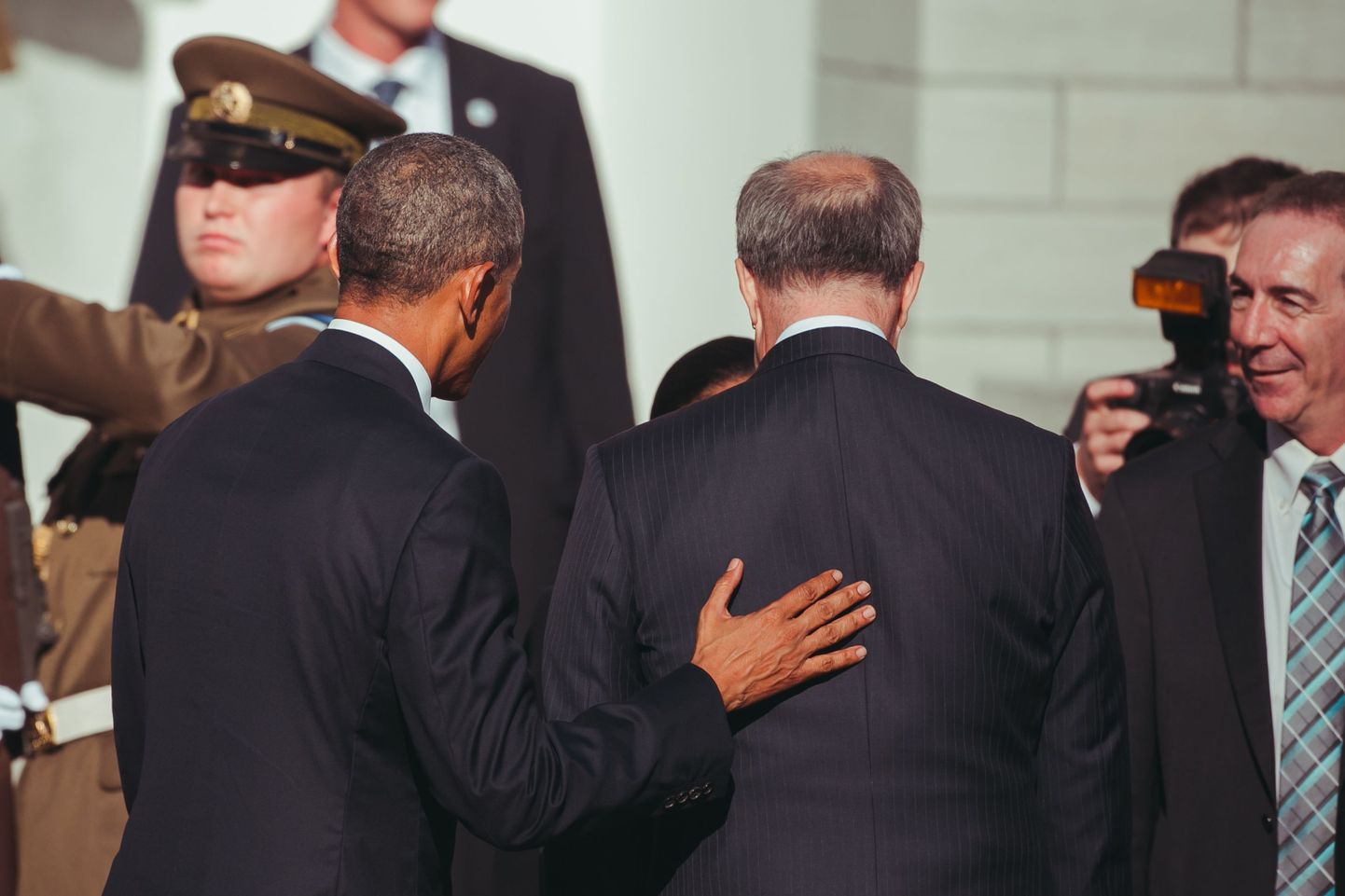
Having touched down in Tallinn, at dawn yesterday, the US President Barack Obama was moving about a tiny area of the city – between the Kadriorg park and city centre.

Having touched down in Tallinn, at dawn yesterday, the US President Barack Obama was moving about a tiny area of the city – between the Kadriorg park and city centre.
During the visit – not longer than the usual Estonian working day – Mr Obama met US diplomats and soldiers, the Baltic presidents, and the government of Estonia. A highlight of the trip was a speech held to select audience, touching on unity of NATO and the unshakable article five.
According to foreign policy analyst Ahto Lobjakas, the timing of the brief visit was excellent – the best possible short-time means to send Russia the message of US support towards small states in the alliance.
On the other hand, the timeframe set some limits – but with an US President present, on the eve of NATO summit, within a couple of hundred kilometres of Russian border, the message was the fact of his coming, not some agreement born while here.
Negative scenario
Not that Estonia has no wish list. We do. As laid bare by the German journal Spiegel, for instance, the Baltics and Poland desire the 1997 NATO-Russia base agreement declared null and void. The document prescribed that border-states may have no permanent NATO bases. This very agreement is the one German Chancellor Angela Merkel has been referring to, excluding NATO bases in the Baltic States.
«Estonia stands at a stupid dilemma. Knowing we will not have these desires fulfilled, it makes no sense to publicly ask Mr Obama. Otherwise we’d leave the impression the US is not giving us what we want,» said Mr Lobjakas before the visit. «So, in a way, the visit will tie our hands. Some things have to be asked for someplace else, not here.»
According to Estonian President Ilves’ security advisor Merle Maigre, the discussions between the two heads of state were primarily about security policy. «A definite point was whether and to which degree the USA planned to prolong and establish its presence in Estonia and the Baltics,» said she.
Message to Putin
According to Estonian Foreign Policy Institute head Professor Andres Kasekamp, the visit’s main signal was towards the Kremlin – so Russia would not get it into its head to repeat Ukrainian aggression in Baltics or Poland.
«If Vladimir Putin is a rationally calculating cynical opportunist, he ought to have got the message,» analysed Prof Kasekamp. «However, if the German Chancellor Angela Merkel is right about Mr Putin living in a parallel reality, then he won’t get it.»
Mr Lobjakas thinks a short-term effect of the visit is that Mr Putin will consider it happened. Long-term, what counts with Kremlin is perhaps how the Baltic defence capacity changes after the visit.
«On that hangs, figuratively speaking, how long the incense, left by Mr Obama, will linger in the air, that is supposed to keep satan away,» reasoned Mr Lobjakas.
According to a veteran US policy observer Jonatan Vseviov, Mr Obama’s visit also spells wider recognition of Estonia in the United States – with so many of their journalists here to cover it.
Both Ms Maigre and Mr Vseviov agreed the visit was not revolutionary – rather a logical step considering the close cooperation of the two countries lately, and their strong agreement when it comes to defence spending.